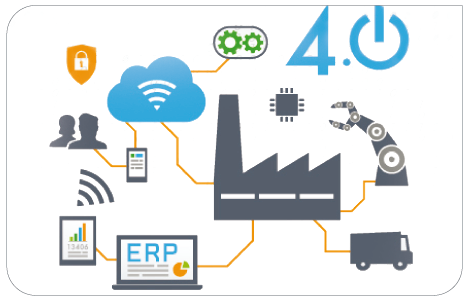The effect that the integration of the different areas in which this revolution is developing may have, such as Cyber-Physical Systems, Additive Manufacturing, Cloud Computing, Collaborative Robotics, Big Data or Augmented Reality; especially with the integration between all of them, they will generate new developments of products, services or processes that will reduce fossil fuel needs. On the one hand, the use of the Internet of Things will cause greater traceability of the movement of materials and components that will generate a logistic optimization to reduce transport costs by minimizing the movement routes and their flows; but in addition, alternative technologies may be developed in the field of renewables by using additive manufacturing technologies that allow new products to be obtained more efficiently or with a systemic conception that is also different.




